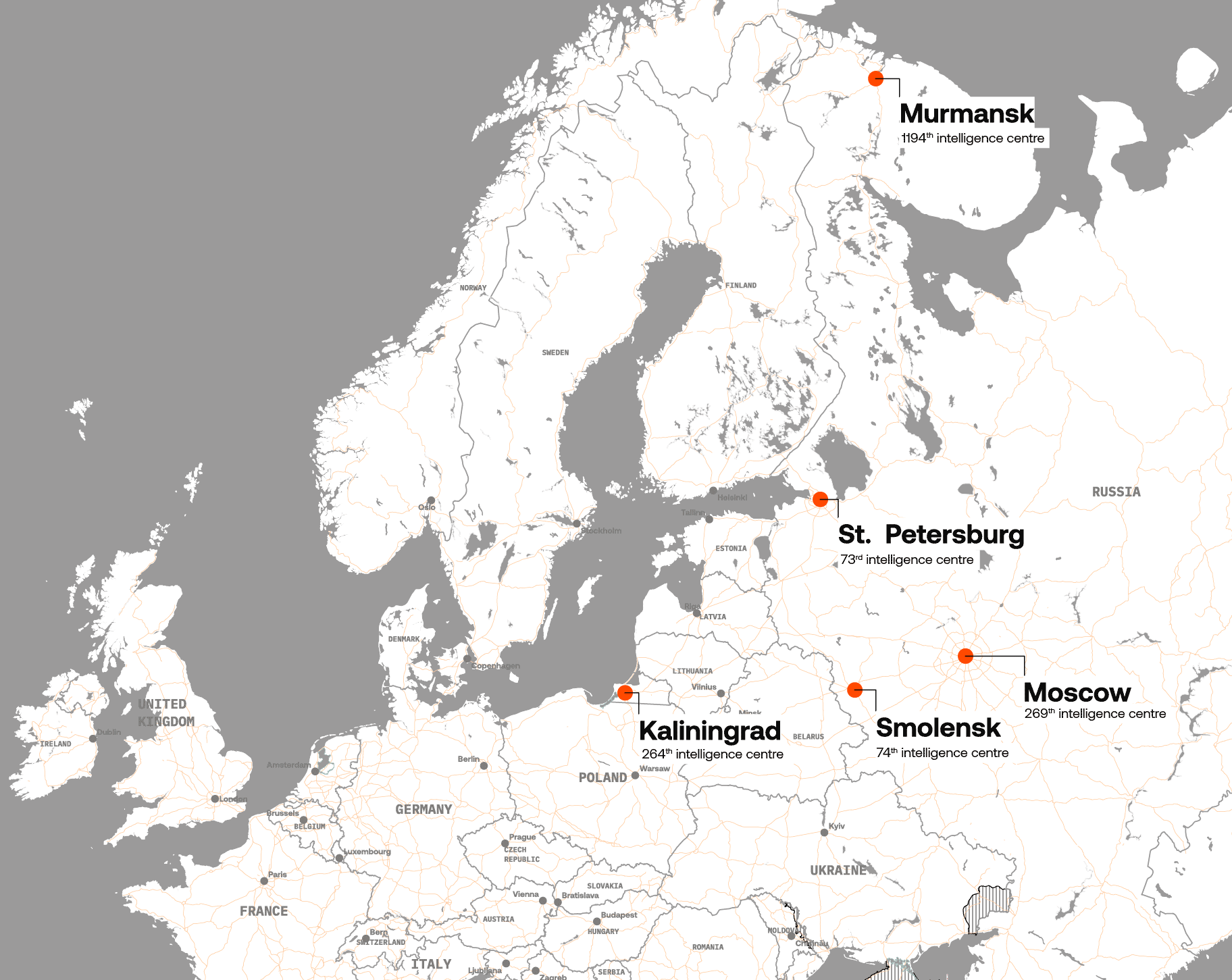Since 2014, the intelligence centres have also been
organising “agent-combat groups” deployed against Ukraine to
carry out bombings and assassinations and prepare arms
caches for activation when receiving a signal from Russia
(for example, in the event of a major outbreak of
hostilities between Russia and Ukraine).
In Ukraine, intelligence centres have organized bombings and
murders and prepared arms caches.
Intelligence centres also recruit agents among residents of
Russia. These agents receive special training so that they
are ready to deploy to a target country in the event of, or
in the run-up to, a conflict where they will carry out
intelligence tasks (in particular observation) and also
prepare to perform diversions or other special tasks. They
can operate abroad in groups or as individual agents and are
equipped, among other things, with radio transceivers to
communicate with their intelligence centre.
The intelligence centres in Kaliningrad and Murmansk also
recruit agents from among seamen (known as a “ship agent”, sudovoi agent). Among other activities, ship agents carry out visual
reconnaissance in port cities worldwide.
Agents generally receive negligible financial remuneration
for their assignments or even perform them free of charge.
Many operational officers at the intelligence centres are
corrupt and keep some of the agents’ pay for
themselves.
Over the past decade, effective cooperation between
intelligence services of NATO member states and partners has
led to consistent identification and conviction of agents of
GRU intelligence centres in countries bordering
Russia.


